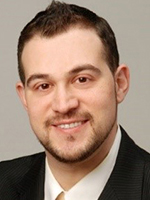Senior Reporter
Strategies Exist to Protect Internal Safety Data From Plaintiffs’ Attorneys, Experts Say

[Stay on top of transportation news: Get TTNews in your inbox.]
When a trucking fleet conducts an internal investigation after one of its drivers is involved in a crash, the results can help to improve safety both for the company and the individual driver. But if a plaintiff attorney gains access to that internal post-accident analysis, the information it contains can turn that company’s good intentions into an element of a legal case that leads to a multimillion dollar jury verdict.
The good news for carriers is that there are ways to conduct internal analyses that keep the data confidential.
“Carriers will often, as part of their safety programs, have their own accident preventability process, where they go in and evaluate if there was anything that my driver did that contributed to the accident, and if there is any kind of action needed to take against him or her to prevent it from happening again in the future,” said Brandon Wiseman, president of Greenfield, Ind.-based Trucksafe Consulting and partner with Childress Law Firm.
Many trucking defense attorneys support the value of post-incident analysis and remediation. Such analysis should be promoted, not punished, in the trucking industry, they argue.
“There’s a legal privilege that’s called ‘the privilege of self-critical analysis,’ ” said Rob Moseley, a veteran trucking defense attorney with Moseley Marcinak Law Group in Travelers Rest, S.C.
“We want motor carriers to look at themselves and honestly evaluate how they’re doing and how a particular driver did, so they can do better than they did last time.”
But if a plaintiff attorney gains access to that data, it can twist that company’s own words into part of a case for their client. The situation is what Wiseman calls a plaintiff attorney’s “golden nugget.”
“If you do an analysis and say the accident was preventable — and you terminate or suspend or sanction the driver — imagine all of a sudden that gets into a courtroom,” said Bradford Hughes, a trucking defense attorney at Clark Hill in Los Angeles.
And plaintiff attorneys often try to access every document they can from a motor carrier — especially internal investigations, said Steven Stanaszak, a Milwaukee-based litigator for the Scopelitis law firm. “Part of the game is to prevent that,” he said. “The plaintiffs’ bar is very well organized. Once something like that gets out, it’s across the country on the web and it’s a matter of hours.
And the implications, he noted, can stretch beyond the individual company.
“You end up trying the industry, not just the motor carrier,” Stanaszak said.
Fortunately, there are ways to keep post-accident analyses private.
One way is for a carrier’s staff attorney, or a hired attorney, to conduct the internal analysis.
“There are several reasons for that, but perhaps the most important is you have the benefit of attorney-client privilege,” said Jeff Oster, a partner at Vaughan Baio & Partners in Philadelphia, noting that such treatment could prove valuable to a fleet’s defense down the road.

Oster
Have the attorney talk with the driver and the safety supervisor to get details on an incident while it’s fresh in the driver’s mind, Oster said. “That’s not getting out to opposing counsel,” Oster said. “A plaintiff attorney is going to have an uphill battle in court if he wants to try and pierce the attorney-client privilege. It’s not going to happen.”
Any documents the attorney creates are under the attorney work product doctrine, Oster added.
“The attorney-client privilege and attorney work product doctrine are two force fields that are nearly impossible for a plaintiff attorney to breach,” Oster said.
The investment in legal representation can pay dividends, even for smaller carriers, he noted. “Think about the cost of hiring an attorney versus the cost of a multimillion dollar jury verdict,” he said.
Another strategy for fleets is to wait to conduct post-accident analysis until the case has been litigated.
“For a major accident, I don’t think a company or a carrier should hesitate to slow down the process in making a decision on preventability, even if they have policy,” Stanaszak said. “I’ve had clients that wait until the end of trial or settlement to make that decision. Because, the truth of the matter is, they’re doing it to improve safety and the quality of the drivers and the services they provide on the roadway. Why not wait for all of that evidence to come out?”

Stanaszak
When conducting an analysis, Hughes also urged against coming to conclusions that assess fault or determine whether or not an accident was preventable. Instead, point out what the driver did correctly to mitigate an incident, and what he could have done better.
“Say something like, ‘In this accident my driver needed to work on stopping distance.’ So when the plaintiff attorney comes knocking, at least you don’t have a big red flag out there where you, as a company official have said, ‘This accident was our fault,’ ” Hughes said.
“The big picture is providing some sort of protection and privilege for the information that is garnered by trucking companies as a result of their efforts to enhance safety,” said Douglas Marcello, an attorney with Marcello and Kivisto, based in Carlisle, Pa. “Granted, there are some courts that provide protections for these preventability actions in litigation. But these are neither all-encompassing, nor consistent.”
He added, “For an industry that is exposed to litigation in random jurisdictions throughout the country, the uncertainty is tantamount to nonexistence. If you can’t count on it, it might as well be nonexistent. Why not give carriers the protection they should have to promote engaging in that, and not punish them for the investment they’re making?”
Over the long term, Marcello said that courts, state legislatures, Congress and federal regulators should take actions to protect carriers’ post-accident analysis from getting in front of a jury.
For example, Marcello said that Federal Motor Carrier Safety Administration regulations make drug and alcohol test results confidential. He suggested post-accident preventable analysis and remedial actions could receive similar treatment.
But even if an internal analysis remains private, Hughes noted there is historical public information that plaintiff attorneys can still access.
“They’ll turn to using your Safety Management Scores, your Safer scores and look at prior accidents,” Hughes said. “The reason that nuclear verdicts happen is because plaintiff lawyers are able to convince jurors that the case in front of them, involving only two parties, is really a case that has to do with the overall safety of the whole community.”
““We all want safety,” Marcello said. “The companies are investing both time and money in safety. They shouldn’t be punished for doing so by having their efforts exposed to those who seek to sue them on a daily basis.”
Want more news? Listen to today's daily briefing below or go here for more info:




